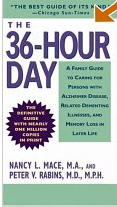Omega 3 Fish Oil and Alzheimer's Disease
Research-Based Analysis of Brain Health Benefits
🧠 Research Overview
Although no one knows what causes Alzheimer's disease, many research studies indicate that those who regularly eat fatty fish or who supplement with fish oil have a lower risk of developing Alzheimer's disease later in life. This is believed to be due, at least in part, to the role Omega 3 fatty acids play in the general functioning of the brain itself.
🌟 Proven Brain Benefits
Mental Function Improvements
- Enhanced memory and concentration
- Improved mood regulation
- Better overall mental function
Documented Treatment Success
- Depression and anxiety
- Bipolar disorder and schizophrenia
- ADD and ADHD
💡 Current Research Focus
While there is currently no cure for Alzheimer's, research indicates that Omega 3 fatty acids can slow down brain aging and possibly delay the onset as well as slow the progress of Alzheimer's disease.
📊 Key Research Studies
Aberdeen and Edinburgh University Study
Led by Professor Lawrence Whalley
Study Design:
- • 300 participants aged 64
- • Assessed Omega 3 intake & blood levels
- • Compared to 1947 IQ test results (age 11)
Key Findings:
- • Better mental speed test results
- • Results correlated with blood Omega 3 levels
- • Evidence of slowed brain aging
Uppsala University Study (Sweden)
Focus: Omega 3 effects on existing Alzheimer's patients
Study Protocol:
- • 89 patients given DHA & EPA (6 months)
- • 85 patients given placebo (corn oil)
- • Placebo group switched to Omega 3 (6 months)
Results:
- • No general differences between groups
- • 32 patients with mild impairment showed less decline
- • Benefits most apparent in early stages
📈 Study Implications
Both studies indicate that Omega 3 supplementation might not only improve mental function in later years, but could also be beneficial in slowing Alzheimer's disease progression, particularly in early stages. However, more research is required to substantiate these findings.
🧬 DHA Deficiency and the "Fatty Acid Paradox"
🧠 Brain Composition Facts
The brain is composed mostly of fat, particularly the Omega 3 fatty acid Docosahexaenoic acid (DHA). Patients with Alzheimer's disease and other forms of dementia have shown very low concentrations of DHA in the brain, indicating a possible DHA deficiency.
⚗️ The "Fatty Acid Paradox"
❌ Expected Approach
Increase DHA intake to correct DHA deficiency
✅ Research-Supported Approach
Increase EPA intake instead - the body produces DHA as required when sufficient EPA is present
🔬 EPA's Protective Mechanism
EPA is believed to inhibit the activity of the enzyme phospholipase A2. Over-activity of this enzyme is associated with neurotoxicity and death of brain cells, and is a feature of Alzheimer's disease as well as other neurodegenerative diseases.
📚 Understanding Alzheimer's Disease
📅 Historical Context
Alois Alzheimer first identified the disease in the early 1900s. It affects over half a million people in the UK alone and is characterized by progressive mental decline.
⚠️ Disease Progression
📊 Risk Factors
- Rare under 50 years of age
- Risk increases with age
- Different from normal aging
🚫 Current Limitations
- Unknown cause
- Irreversible progression
- No current cure

🎯 Conclusion
📋 Key Takeaways
While no evidence exists that Omega 3 supplementation prevents Alzheimer's disease, indications suggest it may decrease risk of developing the condition later in life.
Many other health benefits include increased protection against cardiovascular disease, arthritis, and inflammatory conditions.
Due to toxicity risks in eating too much fresh fish, supplementing with high-quality fish oil appears to be the best way to gain protective benefits.
🔬 Research Status
Current research suggests promising benefits of Omega 3 fatty acids for brain health and potentially slowing Alzheimer's progression, particularly in early stages. However, more extensive research is needed to establish definitive therapeutic protocols.
👨🔬 About The Author
Dave McEvoy is an expert in omega 3 fish oil EPA with over 20 years of experience.
For more information about fish oil and how it can help, visit: http://www.mind1st.co.uk
GreenAndHealthy.Info strives to maintain accurate and up-to-date information; however, mistakes do happen. If you would like to correct or update any of the information, please send us an e-mail. THANK YOU!